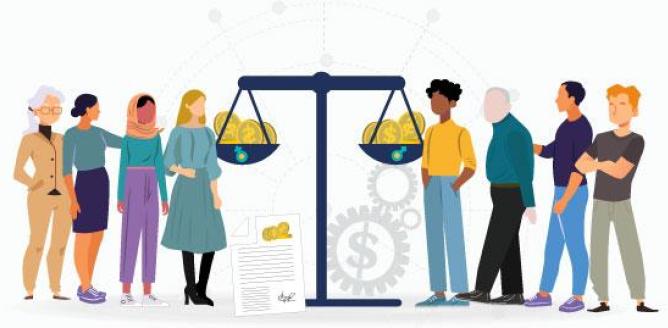“Equal pay isn’t just a women’s issue. When women get equal pay, their family incomes rise and the whole family benefits”– Mike Honda, former US congressman
The US celebrated its Equal Pay Day on April 2 last week. Social media was abuzz with posts about equal pay, from musicians to politicians.
With pay equity increasingly entering the mainstream consciousness, many countries have set aside a special day dedicated to the topic. The Czech Republic and Germany observed Equal Pay Day last month – on March 17 and 18, respectively. In the UK, it falls on November 10, while in Australia it falls on September 13.
Equal Pay Day gives the government, the private sector and the general public an opportunity to raise awareness and push forward solutions. How can we close the gender pay gap? Recently, we have seen two promising initiatives: 1. Non-disclosure of a person’s salary history in certain states, cities and territories in the US, in which employers are not allowed to ask about a potential employee’s previous earnings; and 2. Mandatory reporting of the gender pay gap in the UK, requiring organisations with more than 250 employees to disclose their gender pay gap.
Unfortunately, Hong Kong has not yet joined any equal pay day initiative; neither has the majority of the Asia region. This is not because the gender pay gap is any less of an issue here. According to the World Economic Forum’s Global Gender Gap Report 2018 under the “wage equality for similar work” category, only one country in the region ranks among the top ten: Singapore (no. 2). This is followed by Malaysia (17), Thailand (20), Indonesia (32), Japan (45), India (72), China (74) and South Korea (121).
In Hong Kong, the gender pay gap has widened to 22.2% over the past decade and also increases along with women’s age. We also know there is a disconnect between employers’ and employees’ views on pay equality. According to a study released by TWF and PwC, 73% of senior female employees in the Financial Services sector felt that senior women do not earn as much as senior men.
The same study revealed that pay transparency was not a priority for the surveyed organisations, with only one citing it as a high priority under their organisation’s gender diversity agenda. Likewise, looking at the Hong Kong Government, the Labour and Welfare Bureau said that the bureau doesn’t have a designated team to focus on gender-pay equality issues.
Globally, the equal pay conversation is roaring as the gap remains for women in the workplace. We need to value women and men equally, and promoting pay equity paves a way to boost gender equality. Hong Kong may not have its own Equal Pay Day nor a dedicated team to focus on the issue. However, this shouldn’t stop us from pushing to close the pay gap. Wage equity benefits not just women, but also families and ultimately, society.
Get in touch at Fiona.Nott@twfhk.org





















